On Tuesday 26 March 2019, the 3DGeo Research Group of Prof. Bernhard Höfle and the newly founded Transdisciplinary Lab (TdLab) Geography (Dr. Nicole Aeschbach) hosted a workshop on “Emission Reduction in Smart Cities Using 3D Spatial Sensing and Analysis (ER3DS)” within the frame of the collaboration and exchange project ER3DS running from 2019 to 2020.
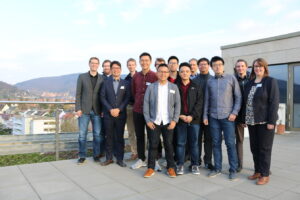
The aim was to integrate the knowledge of geography / geoinformatics, architecture, planning and environment, building energy use, and urban climate experts from Taiwan and Germany. Selected speakers from academia, SMEs and public authorities were brought together in order to assess the (future) role of 3D geodata and 3D analysis for emission reduction in the smart city context (e.g. smart building-integrated photovoltaics). As a result of the transdisciplinary workshop we exchanged know-how from multiple directions and we identified existing and new (joint) application examples. Moreover, we connected and linked new project partners in Heidelberg and Taiwan and we are able to address the main challenges across science and practice as well as between Germany and Taiwan.
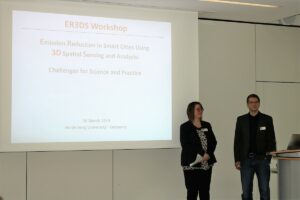
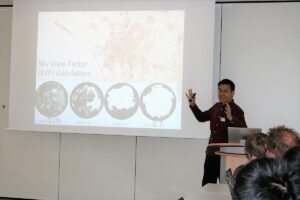
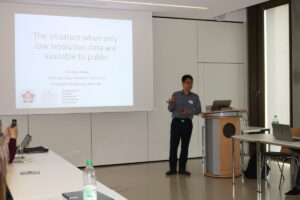
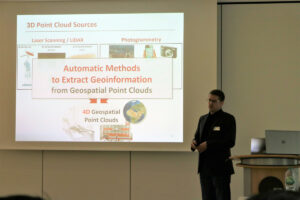
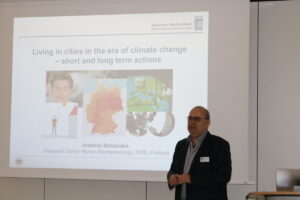
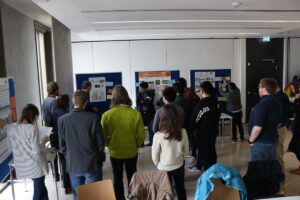
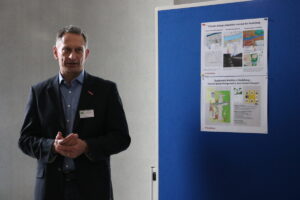
Many thanks to the IWR-Mathematikon administration for supporting the workshop with a perfect venue, and also to the helping hands in the background (Bettina Knorr, Carina Altmeyer and Hannah Weiser).
Find more information about the ER3DS project on the project website and in the GIScience News Blog. In case you want to contribute with your experience and knowledge about ER3DS, feel free to contact us directly.
The project ER3DS is funded by BMBF (Germany, FKZ 01DO19001) and MOST (Taiwan).



